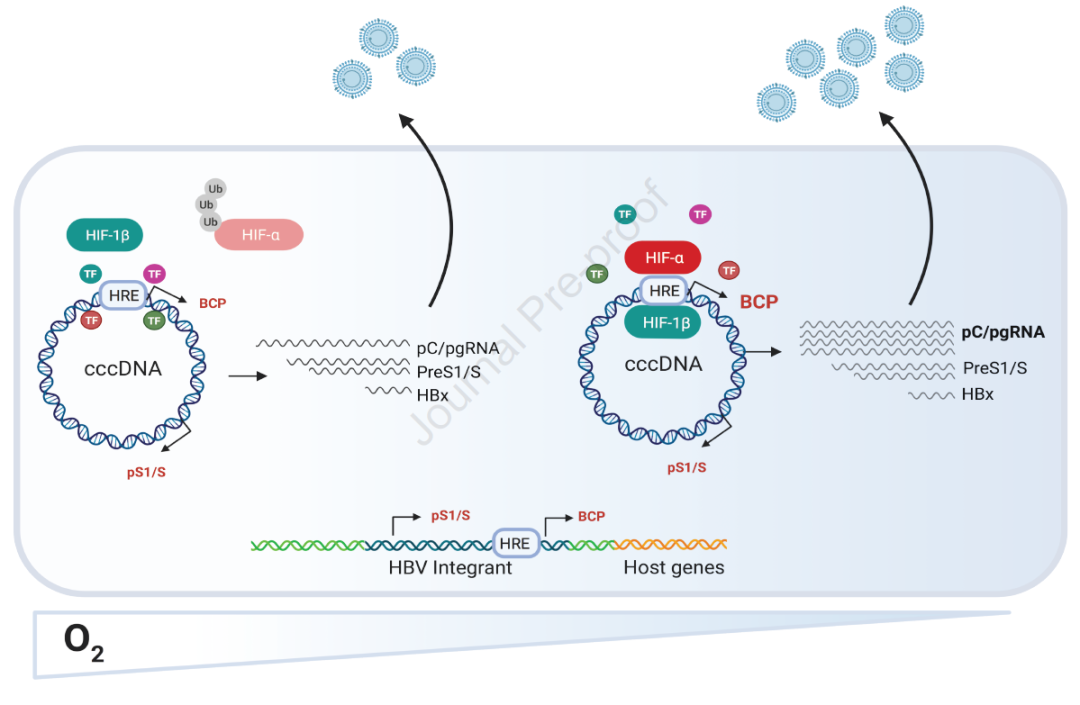J Hepatol: Hypoxia-inducible factor regulates hepatitis B virus replication
- Normal Liver Cells Found to Promote Cancer Metastasis to the Liver
- Nearly 80% Complete Remission: Breakthrough in ADC Anti-Tumor Treatment
- Vaccination Against Common Diseases May Prevent Dementia!
- New Alzheimer’s Disease (AD) Diagnosis and Staging Criteria
- Breakthrough in Alzheimer’s Disease: New Nasal Spray Halts Cognitive Decline by Targeting Toxic Protein
- Can the Tap Water at the Paris Olympics be Drunk Directly?
J Hepatol: Hypoxia-inducible factor regulates hepatitis B virus replication by activating the basic core promoter
J Hepatol: Hypoxia-inducible factor regulates hepatitis B virus replication. Chronic HBV infection is the main cause of liver disease and hepatocellular carcinoma. Hypoxia-inducible factors (HIFs) are a sign of inflammation and a key regulator of liver immunity and metabolism. However, their role in HBV replication is unclear.


Chronic HBV infection is the main cause of liver disease and hepatocellular carcinoma. Hypoxia-inducible factors (HIFs) are a sign of inflammation and a key regulator of liver immunity and metabolism. However, their role in HBV replication is unclear. HBV replicates in hepatocytes in the liver, and the liver is a natural hypoxic organ. However, most studies on virus replication are carried out under atmospheric oxygen conditions. Under this condition, HIFs are inactive . Therefore, the researchers explored the role of HIFs in regulating HBV replication.
This study used cell culture, animal models, human tissues and drugs that inhibit HIF-proline hydroxylase to observe the effects of hypoxia on the life cycle of HBV.
In the model system of hepatocytes cultured under hypoxic conditions, it was discovered that HIFs bind to HBV DNA and activate the basic core promoter, leading to a new role in the secretion of pregenomic RNA and de novo synthesized HBV particles. In all primate members, the presence of hypoxia response elements highlights the evolutionary conservation role of HIFs in regulating the hepatotropic DNA virus family.
Determining the role of this conservative oxygen sensor in regulating HBV transcription indicates that this virus has evolved to use the HIF signaling pathway to persist in the hypoxic environment of the liver. This study shows that it is very important to consider the availability of oxygen when studying the interaction between HBV and the host, and provides a new way to better understand and treat chronic HBV infection.
(source:internet, reference only)
Disclaimer of medicaltrend.org



